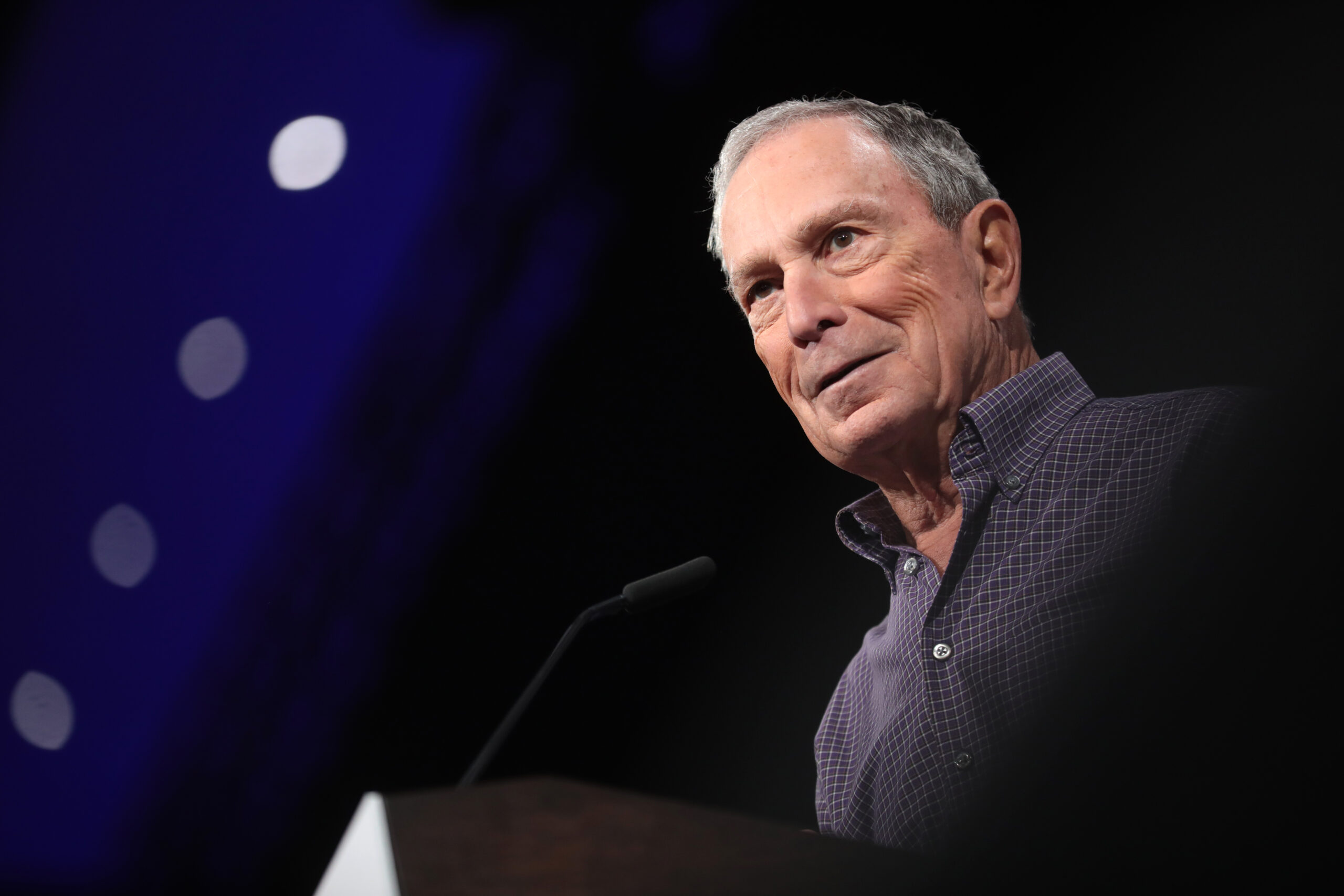Almost a year after the first major candidate to throw her hat in the ring (Elizabeth Warren) declared her run for the presidency, Michael Bloomberg has decided that he is the man that America needs as its next president.
On Sunday, the former Mayor of New York and multi-billionaire declared his intent to “Rebuild America,” in an announcement video that spent as much time attacking leading Democrats’ vision for healthcare as it did criticizing Donald Trump.

Michael Bloomberg has had a long and tumultuous relationship with the Democratic Party. A registered Democrat before 2001, he switched parties to run as a Republican for mayor of New York (getting an endorsement from the now disgraced Rudy Giuliani), became an independent in 2007, and only re-joined the Democrats in 2018, around the same time he funneled a staggering amount of money into the party in the run-up to the midterm elections.
Bloomberg is reportedly worth $53 billion dollars, making the other two billionaires currently in the presidential race (incumbent Donald Trump and activist candidate Tom Steyer) look like paupers beside him. He has repeatedly funded political campaigns from his personal coffers; in 2009 he spent a record-breaking $102 million to get re-elected in New York (this worked out to about $172 per vote).
This time is no different.
As his campaign launched on Sunday, Bloomberg bought an unprecedented $37 million worth of TV spots for a two week period – more ad spending than the entire non-billionaire Democratic field for the entire race so far (although California’s Tom Steyer has spent around $60 million so far).
CNN’s political analyst Harry Enten remarked that the Bloomberg campaign will likely prove once and for all, “how much money can buy” in American politics.
Bloomberg’s advisors have spun this massive injection of cash as a sign that the former-Mayor “cannot be bought” – a similar argument to the one Donald Trump made in 2016 when he was seeking the Republican nomination.
While Joe Biden responded to Bloomberg’s entry to the race by saying, “I welcome the competition,” the leading progressives in the field were far more scathing.
Senator Elizabeth Warren worried that a successful Bloomberg candidacy could change the very face of American democracy itself.
“It’s going to be about which billionaire you can stomach going forward, because believe me, there are plenty of billionaires who believe they should be president.”
Senator Bernie Sanders – whose pioneering of small-donor campaign tactics won him second place in the 2016 primary and have ensured his position in the 2020 field’s top tier – pointed immediately to Bloomberg’s greatest weakness.
“If you can’t build grassroots support for your candidacy, you have no business running for president,” Sanders said.
Sanders hit the nail on the head: there is absolutely no reason any self-respecting Democratic activist should support Michael Bloomberg, and Bloomberg knows it.
As a big city mayor, Michael Bloomberg claimed that the Great Recession was not the fault of the banks but Congress, enthusiastically supported George Bush and the occupation of Iraq, supported Israel’s 2009 assault on Gaza even as the Israeli government was being accused of war crimes, and subjected his city’s Muslim residents to a sinister blanket of police surveillance.

Of course, all this was before Bloomberg rejoined the Democrats.
Bloomberg’s party affiliation may have changed, but he still harbors many right wing views. He has claimed that China’s Xi Jinping is not a dictator, compared Senator Warren’s proposed wealth tax to Venezuela’s regime, and cozied up to Saudi Arabia’s homicidal autocrat Muhammad bin Salman.
There are signs that Bloomberg is aware of how much Democratic activists dislike him. Instead of hiring on seasoned campaign managers as other candidates have done, Bloomberg has elected to fill his team’s ranks with people who already owe him their careers – most notably, a number of Bloomberg News’ editorial staff have joined his campaign (incidentally, Bloomberg’s candidacy has already damaged the respected business news outlet due to staffing and conflicts of interest).
Even more telling, the Bloomberg campaign has opted to avoid campaigning at all in the four early states: Iowa, New Hampshire, Nevada and South Carolina.
These states are unique not only for their “first in the nation” status, but also for the fact that winning there relies on old-fashioned “retail politics”: door-to-door campaigning. A right-wing billionaire like Bloomberg is unlikely to draw many young, enthusiastic Democrats to his banner, putting him at a disadvantage in states where such volunteers are essential. Instead, the campaign has opted to make a play for the Super Tuesday states, where Bloomberg’s vast personal coffers can make a difference in expensive media markets like California and Texas.
For all the reporting that Michael Bloomberg’s campaign is “serious this time,” the odds of his nomination are dubious at best: Polls show that – despite the concerns of New York’s elite donor class – the overwhelming majority of Democratic voters are satisfied with the field of candidates as it currently stands.
The current field represents every major school of Democratic and progressive thought. It would be in no way enhanced by Michael Bloomberg’s pro-big business, socially liberal, fiscally backwards ideology.
Above all, Democratic voters want Donald Trump replaced.
Few seem interested in the notion that the fake New York billionaire in the White House should be replaced with a real New York billionaire.

